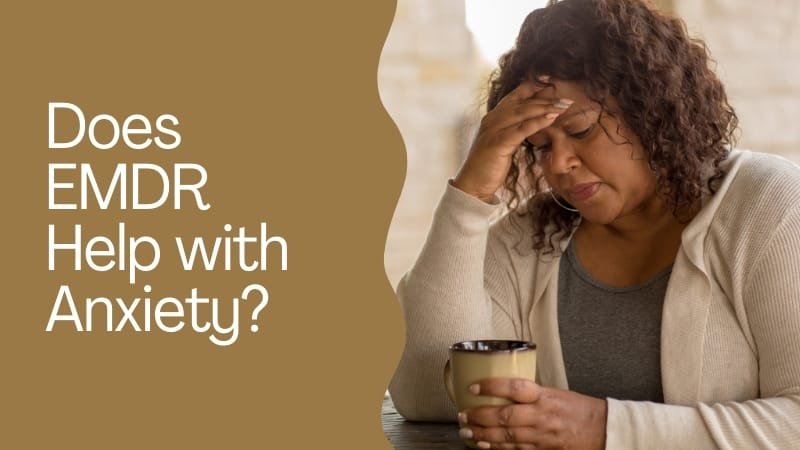Yes, EMDR (Eye Movement Desensitization and Reprocessing) therapy can help reduce anxiety, especially when that anxiety is connected to distressing memories, unresolved trauma, or overwhelming experiences. Though EMDR is widely known for treating PTSD (Post-Traumatic Stress Disorder), research and clinical results show that it can also be effective for:
- Generalized Anxiety Disorder (GAD)
- Panic attacks
- Social anxiety
- Phobias
- Health-related anxiety
- Performance anxiety or test anxiety
How EMDR Works for Anxiety
EMDR helps by targeting the underlying causes of anxiety — often past events or emotional triggers that were not fully processed by the brain. During EMDR sessions, the therapist guides you through bilateral stimulation (such as eye movements or tapping) while you recall emotionally charged memories or thoughts. This process supports your brain in “reprocessing” the memory, reducing the emotional charge and changing the way it impacts your present thinking and behavior.
As a result, many clients report:
- Fewer anxiety symptoms
- Increased emotional regulation
- Better sleep and concentration
- Reduced avoidance behaviors
Is EMDR Right for Everyone with Anxiety?
EMDR can be very effective, but it’s not a one-size-fits-all approach. The best candidates for EMDR often have:
- Anxiety tied to past experiences
- Trouble identifying specific triggers
- Difficulty with traditional talk therapy
However, EMDR is generally safe and well-tolerated, and it can be used alongside other treatments like CBT (Cognitive Behavioral Therapy) or medication, depending on individual needs.
What the Research Says
Several studies support the use of EMDR for anxiety-related disorders. For example:
- A 2017 meta-analysis found that EMDR significantly reduced symptoms of anxiety and depression.
- The World Health Organization (WHO) and the American Psychological Association (APA) endorse EMDR as an effective treatment for trauma-related mental health issues.
Conclusion
If you struggle with anxiety — especially when it feels rooted in past events or trauma — EMDR may be a powerful and transformative therapy to consider. It’s best to speak with a licensed EMDR-trained therapist to assess your unique situation.


